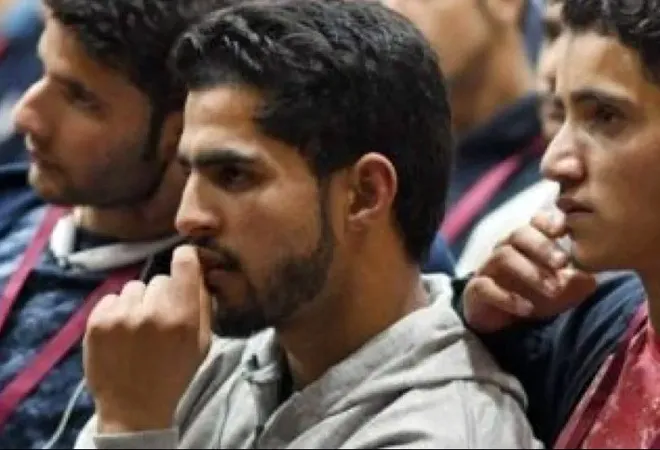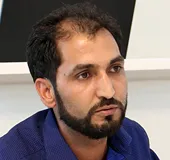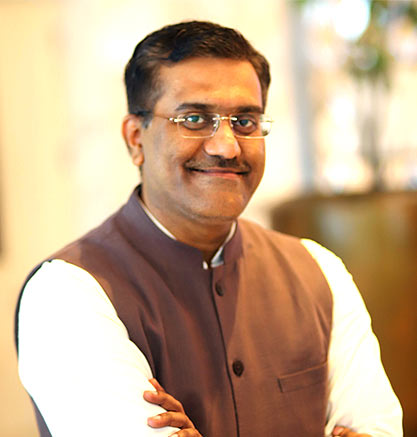-
CENTRES
Progammes & Centres
Location
Kashmir now stands at the cusp of definite change vis-à-vis its attitude towards Pakistan

This brief is part of the series, Pakistan: The Unravelling
Pakistan is in the throes of a messy political crisis as its Army slugs it out with former Prime Minister Imran Khan of the Pakistan Tehreek-e-Insaf (PTI). While the military has used every trick in its books to debilitate Khan and the PTI, the latter also are leaving no stone unturned to get back at the military establishment. In the latest turn of events, Khan has charged that efforts are underway to create a “king’s party”—an oblique reference to the Army—by picking elements from the existing political parties. At the same time, the government has reportedly asked the national media to refrain from publishing or broadcasting Khan’s speeches, statements, tweets, or displaying his pictures.
Kashmir has remained a standard narrative for the Prime Ministers of Pakistan as well as the Army to divert the attention of its citizens from the country’s political and economic woes.
As the political slugfest continues in Pakistan, the youth in Jammu and Kashmir are looking at these developments with a keen sense of curiosity.
Kashmir has remained a standard narrative for the Prime Ministers of Pakistan as well as the Army to divert the attention of its citizens from the country’s political and economic woes. For instance, incumbent Shehbaz Sharif, soon after becoming the Prime Minister in April 2022, had claimed Kashmir’s blood is “flowing on roads of Kashmir, and the Valley is red with their blood” and that “forceful encroachment was done in August 2019”. Likewise, Khan had frequently used Kashmir as a tool for his political gimmicks and parochial political interests. His aggressive speech at the United Nations (UN) in September 2019, soon after India’s administrative restructuring of Jammu and Kashmir state in August 2019, won him well-wishers within Kashmir. Khan had squarely made Kashmir the central piece of his UN speech, creating a new angle of affinity among a section of Kashmiris towards Pakistan.
However, this phase of affinity was short-lived. In any case, only a few in the Valley had expected Khan, PTI, or Pakistan to act on their rhetoric and promises of support to Kashmir. In addition, the withdrawal of security and internet restrictions from the Valley and several governance and development initiatives by the new Union Territory administration quickly ushered in a period of stability in the Valley.
Almost four years later, the situation in Kashmir stands in sharp contrast to the earlier periods. With declining terrorist attacks, there is a dramatic improvement in the Valley’s security conditions, notwithstanding the random isolated incidents of targeted killings. In addition, there is a substantial decrease in militant recruitment—only seven youths within the Valley have joined militancy in 2023 so far. The recent successful organisation of the G20 Tourism Working Group meeting has also increased local youths’ prospects to participate in the Valley’s green, inclusive, and resilient tourism development. They are hoping that Western countries will withdraw travel advisories and Kashmir will again see the return of affluent Western tourists.
The recent successful organisation of the G20 Tourism Working Group meeting has also increased local youths’ prospects to participate in the Valley’s green, inclusive, and resilient tourism development.
This changed reality on the ground has substantially contributed to the local youths’ evolving perceptions towards Pakistan. An overview of the recent vox populi of the youth gives a glimpse of its assessment of Pakistan. When asked about the grave political and economic crisis gripping the country, the youth opine that Rawalpindi and Islamabad had leveraged social media in the last one and half decades to spread their propaganda and radicalise a section of the local youth. However, the same social media has now exposed Pakistan’s deepening political and economic mess.
Khan, who has had his cult of sympathisers in Kashmir for the past few years, has not been perceived kindly by his sympathisers in Kashmir this time around, especially with him openly abusing the Pakistani Army and the PTI supporters rioting and vandalising military property and symbols post his arrest on 9 May 2023. The images of these protests of the chaos caused by the PTI cadres have been discussed widely by the youth. Some even compared the viral videos of Pakistani security forces’ physical abuse of female protestors with episodes of yester years’ protests in the Kashmir Valley. They asserted that even during the episodes of violent protests between 2016 to 2019 in Kashmir, no Kashmiri female protestors faced such mistreatment at the hands of the security forces. According to them, the Mumlikat-e-Khudadad (an endowment from Allah), i.e. Pakistan, is now seen as an epitome of a political culture that breeds divisions, nepotism, corruption, and greed.
This outlook also defines the youth’s perceptions of Pakistan’s role in the Kashmir issue. The youth feel that Pakistan has fooled Kashmiris many times by exploiting religion and prophetic sayings. Under its garb, Pakistan had engaged in dirty dealings and shady practices, like narcotics smuggling, not only to finance terrorism and violence in the Valley but also to end the remnants of the syncretic Kashmiri culture. There is now a fair realisation among the youth that Pakistan’s support of terrorism in Kashmir is not because of its affinity towards Kashmiri Muslims, but it is owing to Rawalpindi and Islamabad’s own geostrategic and geopolitical designs to hamper India’s rapid rise on the global stage. Consequently, every single instance of Pakistan-sponsored terrorist violence in the Valley has evoked a decisive and sometimes also quite vocal opposition. For example, after most of the incidents of targeted killings of migrant labourers or Kashmiri Pandits, local youth have held candlelight marches protesting against these Pakistan-backed terror incidents.
Pakistan had engaged in dirty dealings and shady practices, like narcotics smuggling, not only to finance terrorism and violence in the Valley but also to end the remnants of the syncretic Kashmiri culture.
Clearly, Kashmir now stands at the cusp of definite change vis-à-vis its attitude towards Pakistan. In response, the Pakistani establishment will do what it knows best: Stir trouble by cranking the terrorist violence and its propaganda centred around communal developments in India and the associated rhetoric of right-wing fringe elements. No amount of political chaos will deter Pakistan from changing its strategy.
Sameer Patil is a Senior Fellow at Observer Research Foundation
Ayjaz Wani is a Fellow with the Strategic Studies Programme at the Observer Research Foundation.
This assessment is based on the authors’ conversations with the Kashmiri youth in May 2023
The views expressed above belong to the author(s). ORF research and analyses now available on Telegram! Click here to access our curated content — blogs, longforms and interviews.

Ayjaz Wani (Phd) is a Fellow in the Strategic Studies Programme at ORF. Based out of Mumbai, he tracks China’s relations with Central Asia, Pakistan and ...
Read More +
Dr Sameer Patil is Director, Centre for Security, Strategy and Technology at the Observer Research Foundation. His work focuses on the intersection of technology and national ...
Read More +